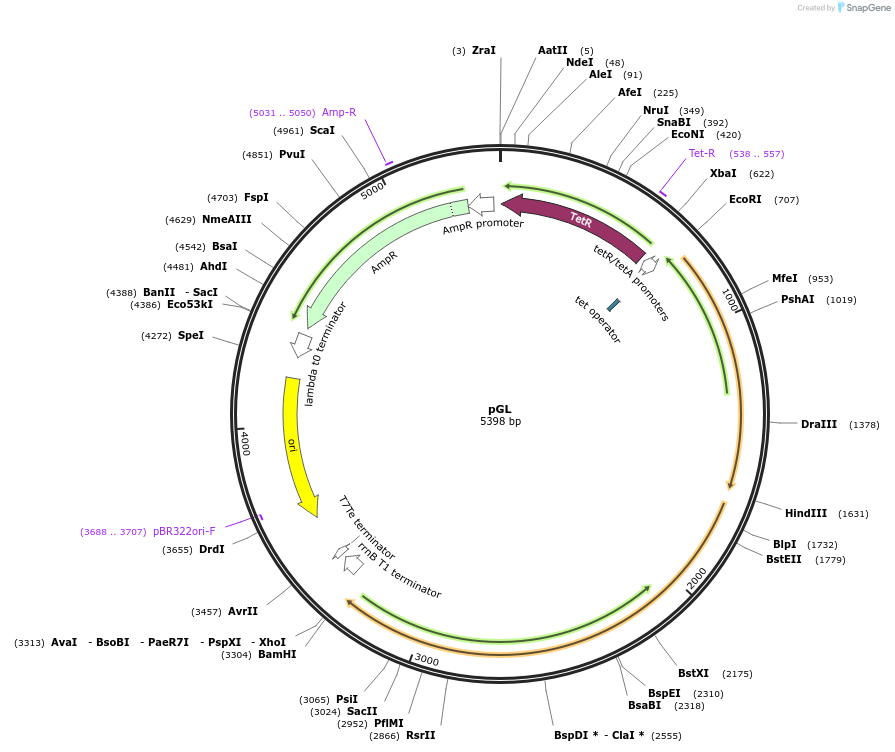pGL
(Plasmid
#119952)
-
PurposeExpresses GPPS and LimS, for the production of GPP and (S)-limonene, in Escherichia coli.
-
Depositing Lab
-
Sequence Information
Ordering
| Item | Catalog # | Description | Quantity | Price (USD) | |
|---|---|---|---|---|---|
| Plasmid | 119952 | Standard format: Plasmid sent in bacteria as agar stab | 1 | $89 | |
Backbone
-
Vector backbonepBbB2a-GFP
-
Backbone manufacturerLee, Taek Soon, et al. "BglBrick vectors and datasheets: a synthetic biology platform for gene expression." Journal of biologica
- Total vector size (bp) 5880
-
Vector typeBacterial Expression
Growth in Bacteria
-
Bacterial Resistance(s)Ampicillin, 100 μg/mL
-
Growth Temperature37°C
-
Growth Strain(s)DH5alpha
-
Copy numberLow Copy
Gene/Insert 1
-
Gene/Insert namegpps
-
SpeciesAbies grandis
-
MutationN-terminal truncation of 85 amino acid residues (signal sequence)
Gene/Insert 2
-
Gene/Insert namelimS
-
SpeciesMentha spicata
-
MutationN-terminal truncation of 56 amino acid residues (signal sequence)
Resource Information
-
Supplemental Documents
Terms and Licenses
-
Academic/Nonprofit Terms
-
Industry Terms
- Not Available to Industry
Trademarks:
- Zeocin® is an InvivoGen trademark.
These plasmids were created by your colleagues. Please acknowledge the Principal Investigator, cite the article in which the plasmids were described, and include Addgene in the Materials and Methods of your future publications.
-
For your Materials & Methods section:
pGL was a gift from Nigel Scrutton (Addgene plasmid # 119952 ; http://n2t.net/addgene:119952 ; RRID:Addgene_119952) -
For your References section:
Machine learning of designed translational control allows predictive pathway optimisation in Escherichia coli. Jervis AJ, Carbonell P, Vinaixa M, Dunstan MS, Hollywood KA, Robinson CJ, Rattray NJW, Yan C, Swainston N, Currin A, Sung R, Toogood HS, Taylor S, Faulon JL, Breitling R, Takano E, Scrutton NS. ACS Synth Biol. 2018 Dec 18. doi: 10.1021/acssynbio.8b00398. 10.1021/acssynbio.8b00398 PubMed 30563328



